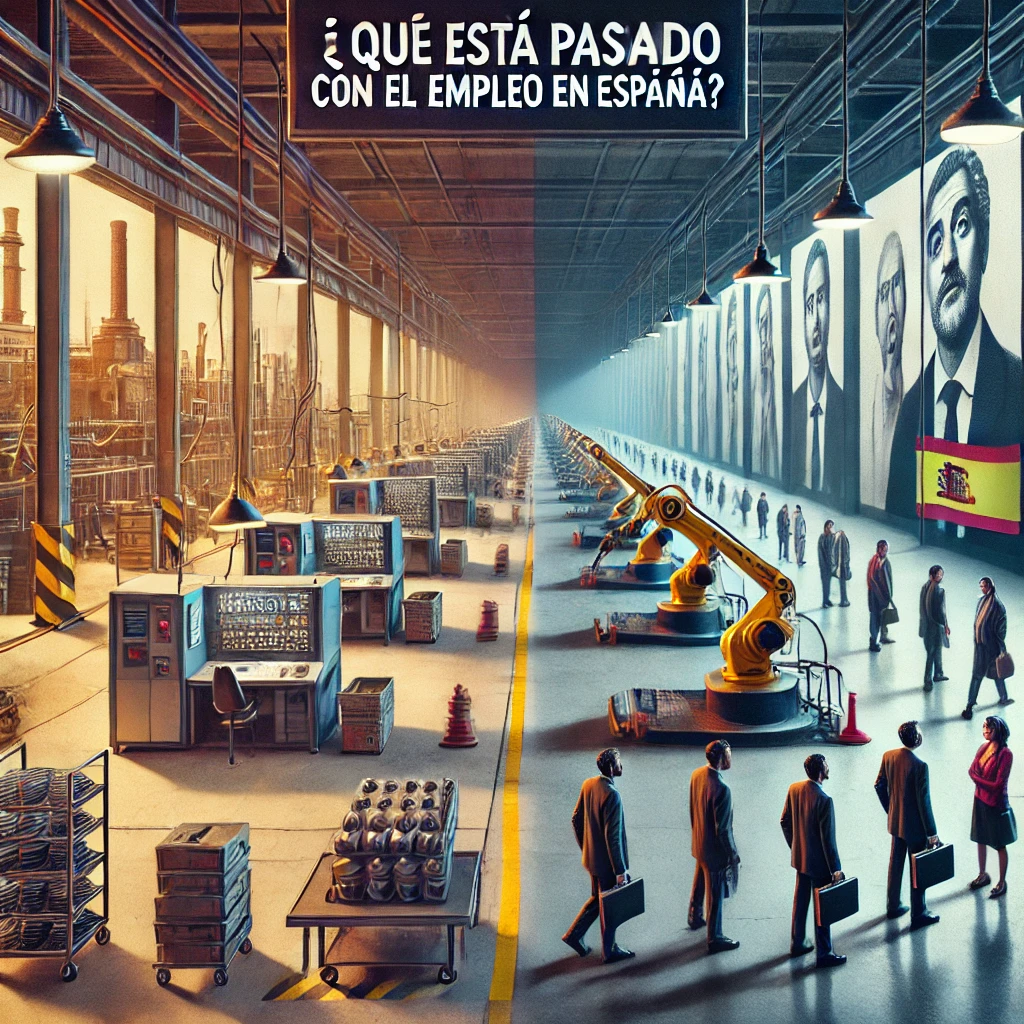The paradox of the Spanish labour market: unemployment and lack of qualified labour
The labour market in Spain is facing an alarming paradox: while the country has nearly 3 million unemployed, companies are struggling to find qualified labour. This contradictory situation raises crucial questions about the causes and possible solutions to improve the situation.
The paradox of unemployment and lack of qualification is that “Spain needs qualified workers, but cannot find enough, despite having millions of unemployed.”
Spain is experiencing a complex labour reality. At first glance, the existence of high unemployment should mean an abundant supply of labour. However, from the primary sector to companies in various sectors, they report a significant lack of workers with the necessary skills for the available positions. This contradiction is due to multiple factors that must be carefully analysed.
The causes of the problem are multiple, therefore, the reasons behind this situation are varied and reflect a mix of political, economic and social decisions taken wrongly over decades. Some key factors include:
*The building rush: At the beginning of the 21st century, the construction boom attracted many workers to the real estate sector, leaving aside training in other areas.
*The speculative boom: The law of supply and demand, together with a certain classist touch, has perpetuated a disdain towards vocational training (FP) for decades.
*Constant changes in educational laws: Since the restoration of democracy, Spain has experienced numerous changes in its educational system, each reflecting the ideology of the party in power. This lack of stability has negatively affected the training of future generations.
Therefore, the current consequences are the fruit of a great organizational mess, generated by “The constant shifting of educational laws, leaving a generation without adequate training for the current labor market.”
The combination of these factors has led to the current situation where supply does not match demand. The technological, industrial, healthcare and specialised service sectors are particularly affected, as they require specific skills that are not available in the unemployed workforce.
What possible solutions are possible in the medium term? To effectively address this problem, coordinated and multifaceted action is essential. Solutions cannot come from a single front, but from collaboration between different actors in society:
*Government: Implement educational and employment policies that encourage vocational and technical training. This includes stabilising the educational system and adapting it to the needs of the labour market.
*Employers: Invest in the continuous training of their employees and in collaboration with educational institutions to create specific training programmes.
*Intermediate organisations: Act as a bridge between companies and workers, facilitating job placement and professional retraining programmes.
*Workers: Be willing to adapt and train in new skills to remain relevant in the labour market.
«Only if we row together can we create productive and quality jobs.»
The solution to the paradox of the labour market in Spain is neither simple nor quick. It requires a joint and sustained effort by all those involved. Only in this way can productive and quality jobs be created, the viability of companies be maintained and mutual prosperity ensured.
The alternative, of waiting for a divine solution to appear, is simply a pipe dream!
Time will tell whether Spain can overcome this challenge, but the key lies in cooperation and in the adoption of concrete and effective measures on multiple fronts.































































